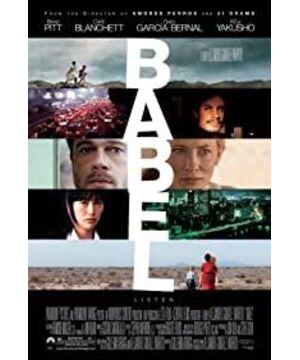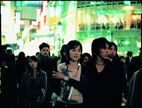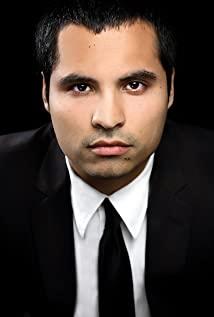Yesterday there was another new film. It was a good one. I told the corrupt elements, and she asked: "Is it "Four Women"?" Because the movies sent by Netflix in the past few weeks are either "A Divorced Woman" or "Three woman". (See "Nine Women in Three Dramas" for details: http://family.mblogger.cn/berlinf/posts/105065.aspx )
Some people hit the wall with stars in front of them, and some people hit the wall with women in front of them.
This film is actually "Babel" (Babel), far-fetched, it is also a story of four women. Japanese deaf women, Moroccan women, Mexican women, American women. Japanese deaf-mute girls can't find love, expose themselves in depression, take drugs, and seduce them. Moroccan women who live in the shadow of men never speak, only close-up shots of hardships. Mexican women are kind, strong, but unlucky. American women are suspicious and rebellious.
The four women were all victims: the teenage Japanese girl was mocked. The young American woman was shot. The middle-aged Mexican woman was deported. Elderly Moroccan women are ignored. The typical character defined by a particular national character falls under an atypical situation: an American woman leaves her two children and her husband on vacation in Morocco, and is accidentally hit by a rifle given to the Moroccan by the Japanese girl’s father. The Mexican nanny took the two children to Mexico to attend the children's wedding, but on the way back, he was catastropheed and deported. The American family was reunited after suffering. The Moroccan family broke up in an accident. The Japanese family reconciled while searching. The Mexican family was reunited after the American dream was shattered. One of the comedies is a comedy of errors, which I think should be called a tragicomedy of errors. American and Japanese families are happy after tragedy, Mexican families are happy afterwards, and Moroccan families Probably it is more tragic after grief.
Strictly speaking, this is not a woman's movie, it is just a joke. This film can also be said to be the international version of "Crash", but it is better than "Crash". Everything that happened in this film is also like a microcosm of this world. In other words, he is the director rethinking the world in the eyes of the United States, the United States in the eyes of the world. They have unimpeded passports and can run everywhere, but wherever they go, they are still virtuous: pushy, loud, self-centered. Americans don’t deny this, but they admit that they don’t change their actions, even Secretly proud.
Some of the Americans in this movie are ugly, such as the arrogant American police on the border between the United States and Mexico, and the American tourists who abandoned their compatriots. With a soft eye, the film looks at the Arab world that is opposed to the United States in reality. The Moroccan boy who was shepherd, after the death of his kind brother, his despair on his face made people look at him for a long time.
The communication barrier in this film, the Tower of Babel, has nothing to do with language. Deaf-mute women can communicate through handwriting. Americans and Arabs can communicate through interpreters, and through a caring move, the difficulty of communication can be completely ended. And more terrifying than language barriers is the barrier of mind. The Tower of Babel of this kind of soul is even more powerful, or in Cantonese, even Babel (closed)!
You can speak exactly the same language as a person, and you can know a person very well, but in the end you find that it is not the people around you who save you, but a stranger who meets in peace. Perhaps when mankind built the Tower of Babel in order to reach the sky, some of the brothers of mankind were separated because of language disorder and accidentally separated. After countless years, in an accidental impact, I regained my understanding. Within the four seas, all are brothers.
View more about Babel reviews










